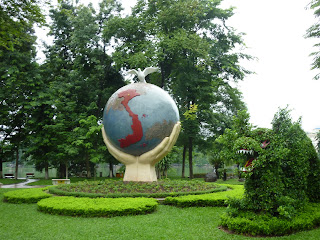Addressing issues of poverty, exploitation, child protection, education, aid, and humanitarian relief efforts in Asia.
Welcome to my Blog
WELCOME TO MY BLOG................
The United Nations Website for reporting on the Millennium Development Goals (www.un.org/millenniumgoals/) reports that more than one billion people live in hunger and extreme poverty. Over 32 million children are out of school. In addition to an increased likelihood of being out of school as compared to boys, girls face gender discrimination that leads to lower earning, increased illness and violent crimes. The likelihood of a child dying before its first birthday is 8 times higher for those in developing countries than for those in developed countries, and 13 times higher for the bottom billion of the population. Maternal health, labor and sex trafficking, access to clean water, HIV/AIDS, and environmental sustainability each bear grim statistics that call for action, and perhaps the hardest of all to acknowledge, is that 24,000 children in developing countries die preventable deaths every day.
The purpose of this blog is to provide information related to understanding these issues and to provide multiple resources to enable readers of this blog to take individual action. The blog will also provide updates on current activities and partnerships addressing these issues as well as some “catch up” backstories as many have asked about the path that brought me to my current passion to address social injustices and the belief that real progress is not only possible it's essential and although many of the issues are complex there are many tangible and specific things that can be done now to reduce the suffering and improve the lives of literally billions of people.
Thursday, December 22, 2011
Flood Response in Thailand - December 2011
Saturday, December 10, 2011
Issues related to poverty and poverty itself can be eliminated
Thursday, December 8, 2011
Backstory: Moving to Thailand
Last year at this time, almost to the day, I received the news that I had not been selected for the WV post in Panama. It was disappointing to say the least, as I had felt my prior experiences, including moving to Spain a few years out of college, had been preparing me for this role. World Vision did express interest in having me apply for the same role but serving a different region – East Asia based in Bangkok, Thailand, instead of Latin America/Caribbean based in Panama. I had never been to either location but somehow Panama felt like a local move (my sense of “local” has been warping for the last 20 years) and Thailand felt like the other side of the world (because it is!).
There was a feeling of calling that required my availability and responding I moved forward and began the interview process. By February I was in Bangkok for final face-to-face interviews. During this trip I met with strategic leaders for community transformation, advocacy, child health, poverty eradication, and anti-trafficking. I learned that 900 million of the world’s poor live in Asia, more than any other region in the world, including Africa, and that there was measurable evidence of progress to addressing and, possibly eliminating, many issues related to poverty, including poverty itself. It was inspiring and daunting, all at the same time. I'm not sure how to describe what I felt when the offer came through, but I realized the opportunity it represented and so after prayer and consultation with friends and family, I moved forward and by the first week of April I had relocated to Bangkok accepting the role of East Asia Director of People & Culture. For more on this region and the work I am involved in check out this site (it also has coverage on the flooding in Thailand). www.wvasiapacific.org
















